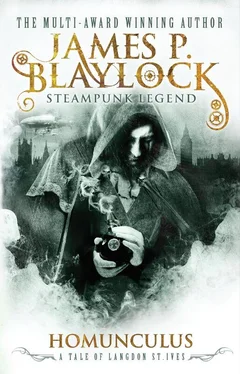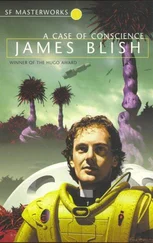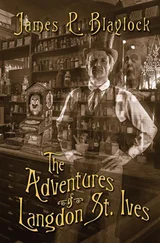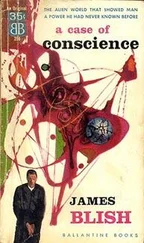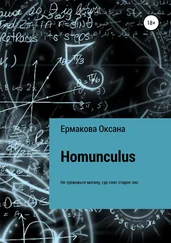James Blaylock - Homunculus
Здесь есть возможность читать онлайн «James Blaylock - Homunculus» весь текст электронной книги совершенно бесплатно (целиком полную версию без сокращений). В некоторых случаях можно слушать аудио, скачать через торрент в формате fb2 и присутствует краткое содержание. Жанр: sf_stimpank, на английском языке. Описание произведения, (предисловие) а так же отзывы посетителей доступны на портале библиотеки ЛибКат.
- Название:Homunculus
- Автор:
- Жанр:
- Год:неизвестен
- ISBN:нет данных
- Рейтинг книги:5 / 5. Голосов: 1
-
Избранное:Добавить в избранное
- Отзывы:
-
Ваша оценка:
- 100
- 1
- 2
- 3
- 4
- 5
Homunculus: краткое содержание, описание и аннотация
Предлагаем к чтению аннотацию, описание, краткое содержание или предисловие (зависит от того, что написал сам автор книги «Homunculus»). Если вы не нашли необходимую информацию о книге — напишите в комментариях, мы постараемся отыскать её.
Homunculus — читать онлайн бесплатно полную книгу (весь текст) целиком
Ниже представлен текст книги, разбитый по страницам. Система сохранения места последней прочитанной страницы, позволяет с удобством читать онлайн бесплатно книгу «Homunculus», без необходимости каждый раз заново искать на чём Вы остановились. Поставьте закладку, и сможете в любой момент перейти на страницу, на которой закончили чтение.
Интервал:
Закладка:
The industrialist’s desires hadn’t changed. He was prepared to offer Keeble a sum of money — a substantial sum for the plans to the engine, for the patent. Keeble wasn’t at all interested. Drake’s eyes narrowed. He doubled the sum. Keeble didn’t care for sums. Damn all sums. He was suddenly powerfully thirsty. On the hall table sat a walrus tusk, carved into the semblance of the beast that had sprouted it. Keeble imagined twisting its foolish head off and draining the peaty contents. But he’d have to offer Drake a glass, and he wasn’t about to. Damn Drake and all of his affairs. He and his notion of textile mills run by perpetual motion engines made Keeble sick. The idea of a textile mill alone — a mill of any sort — made Keeble sick. Practicality in general made him sick, and the contrived practicality of Drake’s utilitarian vision instilled in him an inexplicable mixture of indifference and loathing that made him long for his bed and a glass with which to chase Drake into nonexistence.
Drake champed at his cigar, rolling it in his mouth, his eyes squinting up into tight little slits. This wasn’t, insisted Drake, merely a casual offer. He had certain methods. He had vast resources. He could exert pressure. He could buy and sell Keeble a dozen times. He could ruin him. He could this; he could that; he could the other. Keeble shrugged in his ridiculous cap. The clock on the wall opposite the hall table suddenly went off, pealing in a sort of doleful, leaden tone, utterly out of keeping with the little clockwork apes who charged grinning out of their lair in the interior and banged away with mallets at a bell-shaped iron octopus.
Drake frowned at it, recoiling slightly. The door opened behind him, and Dorothy, a troubled look on her face, stepped through, stopping in sudden surprise at the sight of the stranger’s back. Keeble motioned with his eyes toward the stairway, but Dorothy hadn’t taken a half step toward them when Drake turned, a broad smile betraying splayed yellow teeth. He clamped his mouth shut at the sight of Dorothy’s involuntary grimace, and bowed slightly, flourishing his hat. “Kelso Drake, ma’am,” he said, rolling his chewed cigar from one side of his mouth to the other. “Very happy to make your acquaintance.”
Dorothy nodded and proceeded toward the stairs, saying, “Pleased, I’m sure,” over her shoulder, impolite as it seemed. Her father nodded his head toward the stairs in quick little jerks, stopping abruptly when Drake turned and looked at him quizzically. The questioning look turned once again into a leer, as if Drake’s face naturally molded itself that way out of long practice. “What was I saying?” he asked the toymaker. “I was momentarily,” he paused and pretended to search for a word, then said theatrically, “distracted.”
“You were just saying good day,” Keeble stated flatly. “You’ve got my answer. There isn’t any room for discussion.”
“No, I suppose there isn’t. I’m averse to discussion anyway. A waste of time. Very pretty daughter, that one. Fetching, you might say. You have three days.”
“I don’t need three days.”
“Thursday, let’s say. And do stay sober. This business will require all of your efforts, regardless of the outcome.” And with that, Drake raised his stick and neatly flipped Keeble’s nightcap from his head, turned, and strode through the yawning door. He climbed into the interior of a waiting brougham and was gone.
Keeble stood still for a moment, as if his blood had solidified. His neck and face were hot. Without turning his head he plucked up the cap from where it had fallen on the hall table. A door shut with a bang upstairs. Had Dorothy listened? Had she witnessed Drake’s departure? Keeble peered up the stairwell, a forced grin stretching his mouth. The stairs were empty. He pulled on the cloth cap and reached for the walrus tusk. There was really nothing to think about. Drake was all bluff. He wouldn’t dare come meddling round again. He’d be sorry for it if he did. Keeble’s hand shook as he drained the tusk, and he set it back onto the table uncapped. What did he care for threats? He stood thinking for a moment then tottered away up the stairs to bed.
FIVE
The darkness of Hammersmith Cemetery was complete. Not a star shone in the clouded heavens, and the occasional gaslamps that burned in oval niches in the block wall of scattered crypts illuminated nothing but a few befuddled moths that stumbled out of the night, fluttered woodenly around the flame, then disappeared once again into darkness. A heavy river fog lay along the ground, and the old yew trees and alders whose bent branches shaded the grounds dripped moisture onto the neck and shoulders of Willis Pule, who clumsily stamped on the backside of a spade. He pulled the collar of his coat around his neck and cursed. His doeskin gloves were a ruin, and on the palm of his hand below his thumb a blister the size of a penny threatened to tear open.
He looked at his companion’s face. He loathed the man — doubly so for his poverty and stupidity. His face was expressionless. No, not entirely. There was a trace of fear on it, perhaps, a shimmer of dread at the sound of the sudden creaking of a limb overhead, at the sigh of rustling leaves. Pule smiled. He raised his left foot again and brought it down sharply on the spade. It slid off, and the shovel dug in a mere inch or two and canted to the side.
There was something utterly distasteful about this sort of work, but the evening’s prize couldn’t be trusted to the navvy alone. Why it was Pule who wielded the second spade and not Narbondo, Pule was at a loss to say. And if they were found out, there wasn’t a bit of doubt that the doctor and his dogcart would be long gone and that Pule would be left to explain himself to the constable. One day that would change. Pule stared through the gloom toward Palliser Road, but the tree trunks just ten yards hence were dark and ghostly in the fog, and the feeble light of his half-shrouded lantern seemed to make the surrounding headstones and crypts even dimmer and more obscure than they were.
The sudden chiming of a distant clock, low and sullen through the fog, startled him. He dropped his spade. A smile danced momentarily on his companion’s lips and eyes, and then was gone, replaced by the heavy dull slump ofstolid indifference. Pule, seething, picked up his spade, grasped it near the base of its ash handle, and thrust it into the dirt. It penetrated several inches and then jammed to a sudden arm-chattering stop against a coffin lid. Pule grunted inadvertently with a thrill of pain and dropped the shovel.
His companion, never missing a stroke, skived the dirt from atop the box, his shovel glancing against the wood and scudding across it. The noises grated unnaturally loud in the heavy silence. Pule let his shovel lie. He’d had enough.
He bent once again over the headstone, cracked to bits years earlier and half covered with moss and mud. Fragments of it were gone altogether. The largest chunk, about a foot square, was cut with deep, angular letters that spelled out half a name — COTE — and below that the number 8 and the vine-draped shoulder of a carven skeleton. The remains of Joanna Southcote lay in the coffin. Her posturing son, himself almost a corpse, would be wild with joy over the worm-gnawed bones within. To Pule, one ruined skeleton pretty much resembled another.
The coffin seemed surprisingly solid for having sat so long in the ground; only one corner, from the look of it, had succumbed to the perpetual dampness and begun to rot, the wood separating into long, mushy fragments along grain lines. Pule’s companion clambered in beside the head end, dug around until he could get a purchase on the edges, and heaved it upward.
Читать дальшеИнтервал:
Закладка:
Похожие книги на «Homunculus»
Представляем Вашему вниманию похожие книги на «Homunculus» списком для выбора. Мы отобрали схожую по названию и смыслу литературу в надежде предоставить читателям больше вариантов отыскать новые, интересные, ещё непрочитанные произведения.
Обсуждение, отзывы о книге «Homunculus» и просто собственные мнения читателей. Оставьте ваши комментарии, напишите, что Вы думаете о произведении, его смысле или главных героях. Укажите что конкретно понравилось, а что нет, и почему Вы так считаете.
